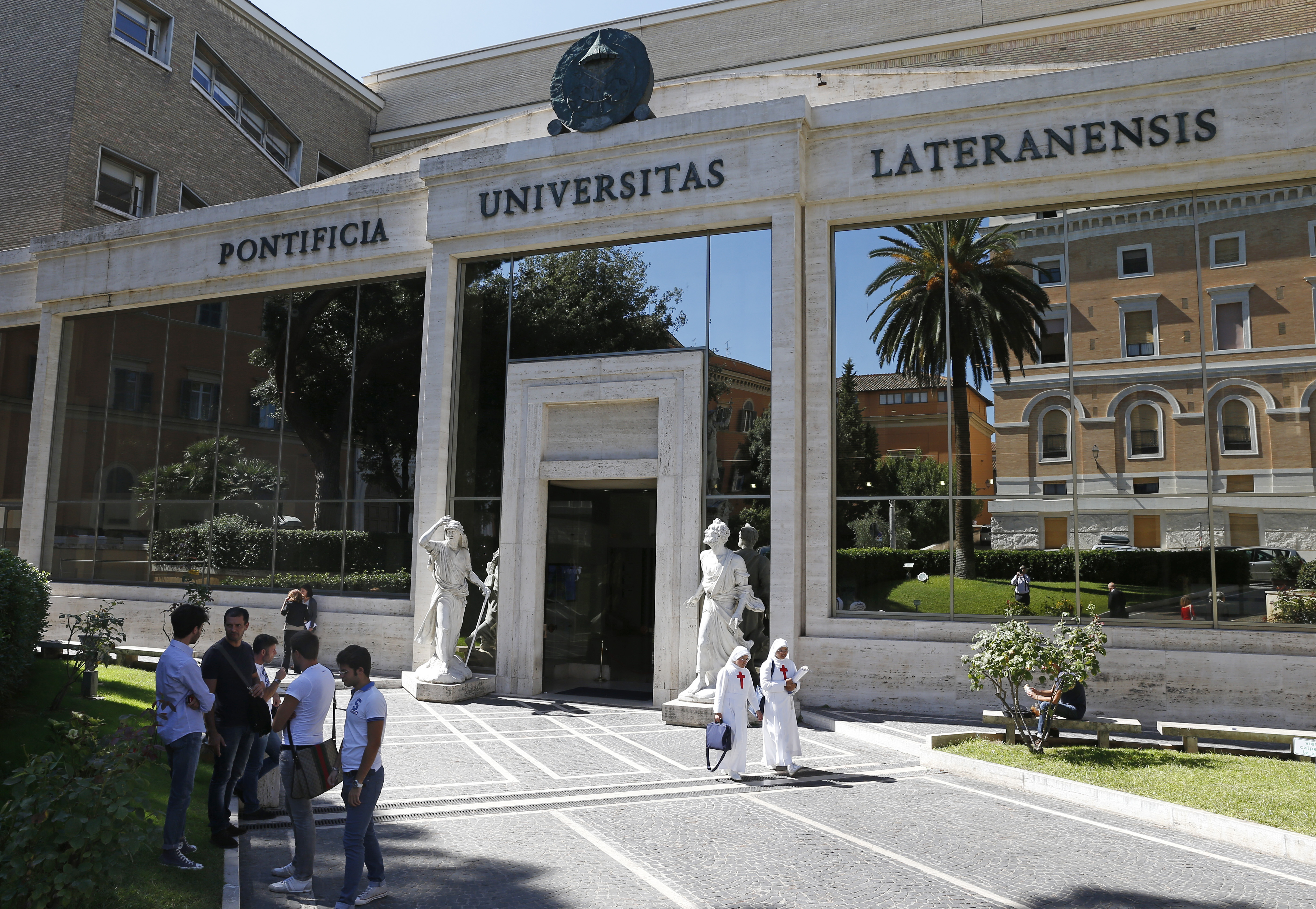The simmering dispute over the future of the Pontifical John Paul II Institute in Rome has continued this week with interventions by an Italian monsignor who insists that the changes being implemented on the orders of Pope Francis are in line with the original intentions of St John Paul II, and a meeting between Benedict XVI and a sacked professor that suggests the Pope Emeritus is personally concerned about the changes.
In an interview with Crux, Mgr Pierangelo Sequeri, mooted in 2016 as the institute’s president, denied that John Paul II’s legacy was being undermined.
“There is no effort whatsoever to subvert the spiritual and theological legacy of John Paul II or the institute he founded,” Sequeri told Crux. “Pope Francis made that explicit to us, and those are our marching orders.”
In 2017 Pope Francis called for the drawing up of new statutes for the Institute, which would broaden its focus. The Institute was established to explore the theology of marriage and the family, but Francis wanted the curriculum to be broadened out to incorporate studies of the family based on the social sciences, and the teaching of his 2016 apostolic exhortation, Amoris Laetitia.
Sequeri insisted that the main feature of the changes is “a spirit of continuity” with what came before – including, he said, the fact that students currently working on degrees under sacked tutors [Mgr Livio] Melina, and [Fr Jose] Noriega will be able to continue to do so until they’re finished. “I’m an old monsignor,” Sequeri said. “I came up under John Paul II, so I come from that tradition."
However, Pope Emeritus Benedict XVI, who has a long history of collaboration with the Institute, met with Mgr Melina last week. The audience was a private one, but it is difficult not to see it as a gesture of solidarity with the dismissed tutor. According to “Catholic News Agency sources” Benedict gave Melina his blessing, prayers, and assurances of solidarity.
Last week the vice president of the Institute, Fr Jose Granados DCJM, said that the ability of the Institute to carry out its function according to its original purpose has been undermined by the new statutes approved and released last month.
He said moral theology was being downgraded at the Institute, with the elimination of the chair of fundamental moral theology and the dismissal of its faculty members. In the new curriculum, “morality … has been reduced by half and … they have thrown out teachers who taught it: Melina, Noriega and for bioethics Maria Luisa di Pietro,” he said. “Is it not that Melina...has remained faithful to Humanae vitae and [the John Paul II 1993 encyclical] Veritatis splendor, and the chair is eliminated in order to eliminate Melina?” he asked.
He went on to express concern over the appointments that might be made to replace Melina and Noriega, under the direction of institute chancellor, Archbishop Vincenzo Paglia, fearing that “it will be a matter of time to replace the teaching staff with another alien to the vision of St. John Paul II”.
An article on LifeSiteNews on 30 July said that Italian moral theologian Fr Maurizio Chiodi, professor of moral theology at the Northern University of Milan and new member of the Pontifical Academy for Life, had been invited to teach at the new institute, but his official appointment was still pending.
The staff changes are expected to be in line with Pope Francis’ decree that the new institute should carry forward the teaching of Amoris Laetitia. At a public lecture in 2018 held at the Pontifical Gregorian University in Rome, Fr Chiodi said there are “circumstances — I refer to Amoris Laetitia, Chapter 8 — that precisely for the sake of responsibility, require contraception.” When “natural methods are impossible or unfeasible, other forms of responsibility need to be found,” he argued. The lecture was entitled “Re-reading Humanae Vitae (1968) in light of Amoris Laetitia (2016)”.
In an interview on 29 July with Avvenire, the official newspaper of the Italian Bishops’ Conference Fr Chiodi suggested - arguing on the basis of Amoris Laetitia - that sexual acts within a homosexual relationship can be good, at least in certain circumstances.
In a statement at the beginning of this month Fr Riccardo Mensuali, a spokesman for Archbishop Paglia, said the Institute was not for the moment answering questions about the implementation of the new statutes. “The institute remains desirous of giving exhaustive responses, but asks a few weeks’ time in the month of August in order to formulate adequate responses.”
Sequeri, meanwhile, said he regards the controversy around the institute as “moves in another battle,” by which he meant a proxy in a larger contest around Pope Francis.



 Loading ...
Loading ...